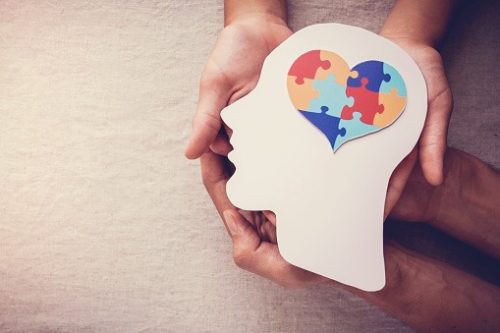Frequently Asked Questions On Health Anxiety Forums
Most people do not like to talk about their mental condition and wellness. Perhaps that is because they do not want to experience judgment and discrimination from others. Many still believe in mental state stigma, society’s negative attitude or stereotype toward people with mental soundness problems. This stigma can make people feel ashamed, isolated, and unworthy of respect or support. This lack of communication and support can worsen their situation and prevent them from seeking professional help or finding effective coping strategies.
Anxiety Makes Someone Lose Trust With People
Anxiety negatively impacts social interaction, causing negative thoughts, lack of trust, and feelings of inadequacy and misunderstanding. It leads to questioning social intentions and fearing harm or being taken for granted. Anxiety complicates mental struggles and can harm connections.
Anxiety Can Cause Extreme Loneliness
The fact that there is a constant fear of getting to know others and worry that being with others makes it impossible for someone to sit in a group. It becomes difficult for him to appreciate being surrounded by people who only want to get to know him better. Anxiety is a mental condition that causes extreme loneliness because an individual dealing with it often chooses to be alone to manage their anxious feelings. With the social pressure that this condition focuses on, it becomes impossible for someone to understand his thoughts and behavior or even get the support that he needs because he would not allow others to become part of the solution.
Anxiety Can Make Someone Feel Hopeless
The things about anxieties are that not everything about it is damaging. Scientific research says that a few encounters with this disorder can help stimulate the brain and encourage alertness. Unfortunately, when too many negative thoughts occur, the psychological impact and risks tend to differ. It makes an individual fear nothing, question unnecessary things, and overthink situations that do not make sense. When it becomes severe, anxiety can immediately escalate into a disorder that makes people feel hopeless. That stage often develops and causes other mental strains, such as severe stress and depression.
Anxiety Can Instantly Change A Person
One thing an individual can surely experience with anxiety is the changes it brings. Not only can it cause a different form of mental and emotional approach, but it can also make an individual change his thoughts and behavior instantly. One example of how it instantly affects a person includes the sudden fear of being surrounded by people and too many worries about changing decisions. It makes people feel worthless, incapable, and worst-case scenario, full of regrets.
As you can see, there is always a thin line when dealing with mental health issues. People often criticize others’ ability to connect with themselves and judge them for not coping. Unfortunately, those become why people with mental soundness issues keep their condition from everyone else and do not seek professional advice or help. But some people are brave enough to express their feelings and thoughts. These individuals are the ones who push themselves to get better. With that said, let us try and focus on understanding what this mental condition is all about and how it affects their lives.
Health Anxiety Forum
Frequently Asked Questions
Here are some more frequently asked questions we can use as a guideline.
Can Health Anxiety Cause Physical Symptoms?
Unfortunately, yes. Most people with health anxieties often cannot function or enjoy life due to persistent and excessive fears and worries. They become preoccupied with minor physical abnormalities or physical sensations that somehow take away their mental focus.
Some physical symptoms of anxiety include rapid breathing, increased heart rate, nervousness, fatigue, sweating, restlessness, and troubled concentration.

Source: pixabay.com
Does Anyone Suffer From Health Anxiety?
Yes. Some people get excessively worried about their physical soundness. Health anxiety is a common condition that affects many people, and it occurs in early or middle adulthood. Usually, it worsens with age as it produces real physical symptoms such as stomachaches, headaches, and rapid heartbeat. It also shows signs of nervousness, muscle tension, tingling in the hands and feet, chest pressure, etc.
How Can People With Severe Anxiety Discover The Most Reliable Treatment Option That Can Help Them Overcome Their Condition?
The most reliable treatment for this condition is psychotherapy. One particular method is CBT or cognitive behavioral therapy. CBT aims to help individuals deal with overwhelming emotional and mental problems positively. It tends to break the issue into smaller parts to easily get a hold of what they must do and understand the situation.
Consulting with a therapist can also help you understand the possibility of getting medication to secure your mental condition needs.
How Long Can Health Anxiety Last?
Anxiety is helpful in some ways as it connects you more to a sensitive concern about the changes to your condition. However, if you are worried for at least six months or more, even though you are entirely healthy, the worry you might have can be a sign of something different. If your fears and worry get persistent, excessive, and extreme, it affects your day-to-day life; there is a huge possibility that it is already a mental condition problem.
Can Your Mind Create Physical Symptoms?
Carla Manley, Ph.D., a clinical psychologist and author, once stated that people with mental illnesses could experience various physical symptoms. These include insomnia, body pain, muscle tension, headaches, and restlessness.
Is Googling Symptoms A Bad Idea?
Avoid self-diagnosing symptoms using internet information, as it can be harmful and mask potentially dangerous conditions. An online health anxiety forum without medical expertise or evidence can perpetuate misinformation and anxiety. Seek professional help for accurate diagnosis and treatment, especially for psychological well-being conditions. Medical professionals can administer tests to assess bodily complications.
Why Can’t I Stop Googling My Symptoms?
As much as possible, it would be best if you avoided over-Googling your symptoms. That is because of the two things that could happen. Either overestimate your mental condition symptoms, take the wrong medication, or engage in the wrong self-treatment. Yes, public information is helpful. However, not understanding your condition thoroughly can only worsen it. It could make you anxious, having no evidence or proof of the truth, leaving you extremely worried and might ignite panic at some point. You might be tempted to join an online forum and seek advice from others who claim to have similar symptoms, but this can be misleading and harmful.
How Can I Stop Worrying About My Medical Results?
Worrying about your medical result is quite normal. However, it would help if you did not allow your mind to assume the worse scenarios. Be more in control of your thoughts and feelings. It will help to focus on other things that can make you appreciate life to the fullest. Stick to your daily healthy routines and avoid overcrowding your mind with negative ideas. Keep yourself busy and limit the things you look up online, especially if it’s about medical symptoms.
How Do You Calm Down From Hypochondria?
Calming down hypochondria requires self-awareness. You should not shame and blame yourself for everything that is not going your way. Things can happen for many reasons, so you should not have to question your beliefs. If your worries are something you can no longer control, seek immediate help. Talk to a friend about what you feel. Try to learn the best coping strategies that suit your needs.

Source: pixabay.com
What Do You Say To Someone With Health Anxiety?
Health anxiety is a serious state of mind and can affect a person’s daily function. Thus, you must understand the right words to help someone overcome a mental soundness problem. Always start with “Are you ok?” and “How can I help?” If those positive words warm the individual up, encourage him. Tell him, “I’m always here if you need to talk,” “Let’s sort through this together,” and “Your fears and worries are valid.”
Always be considerate of others’ feelings. It does not mean they are not suffering inside because they do not often show their emotions. Be careful with your actions and words, as these things cannot be taken back once said and done.
What Triggers Hypochondria?
The usual triggers of hypochondria include major life stress. It can also come from a history of abuse and trauma as a child, such as physical, sexual, verbal, and emotional. It can also originate from other chronic conditions, such as cancer or an unnecessary belief that something threatens one’s soundness.

Source: pixabay.com
Is Health Anxiety A Mental Illness?
Health anxiety was previously called Hypochondriasis or much better known as hypochondria. It was classified as a mental disorder due to its effect on the person’s emotional and mental state. However, the DSM, or the American Diagnostic and Statistical Manual of Mental Disorders, no longer include the condition.
What Is Severe Health Anxiety?
This condition, commonly called Hypochondriasis, is an excessive worry of possibly becoming seriously ill, like having a serious panic or heart attack. That is despite not having or experiencing any physical symptoms.
Is Health Anxiety Part Of OCD?
Obsessive-compulsive disorder (OCD) and Hypochondriasis or health anxiety have many similarities. With all areas of OCD, the underlying anxiety is considered the root of both conditions. However, the real problem is not the aspect of obsession but how individuals relate to the symptoms and respond to them.
How Do I Stop Worrying About Everything?
For you to be able to stop your mind from worrying too much, you should keep yourself busy. You can write your worries down and reflect on them. Accept that things don’t always go your way and that you must move on. Make time for yourself and practice mindfulness and meditation.
How Do I Stop My Health Anxiety?
Educate yourself with reliable information to manage this condition and challenge irrational thoughts. Limit seeking reassurance and focus on relaxation techniques for calmness. Maintain a fit lifestyle through exercise, a balanced diet, sleep, and stress management. Minimize exposure to triggers like excessive news consumption. Seek professional help if needed. Remember, overcoming anxiety takes time and patience.
Can Health Anxiety Cause Real Symptoms?
Anxiety can cause physical symptoms, known as somatic symptom disorder. Distress and heightened bodily awareness can lead to interpreting sensations as severe illnesses. Symptoms include headaches, muscle tension, digestive issues, chest pain, breathlessness, dizziness, and fatigue. Consult a healthcare professional for evaluation and support in managing somatic symptom disorder.
Does Health Anxiety Ever Go Away?
Health anxiety, a treatable mental health issue, can diminish with treatment and management. Duration and course vary, with some experiencing transient phases while others may have chronic conditions. Cognitive-behavioral therapy and medication can help manage symptoms. Seek professional help for a tailored treatment plan. With support, individuals can reduce anxiety and lead fulfilling lives.
Why Is My Anxiety About My Health So Bad?
Health anxiety intensity varies due to cognitive patterns, past experiences, lack of control, media exposure, and underlying psychological conditions. Seeking professional help is crucial for proper diagnosis and treatment to manage and alleviate the impact of health anxiety.
How Do I Stop Googling Health Symptoms?
To reduce excessive Googling of symptoms, try these strategies: Set limits on your internet searches, and only conduct them at designated times. Stick to reputable sources for reliable information. Be mindful of your thoughts and emotions when the urge to Google arises. Challenge catastrophic thinking and focus on more balanced perspectives. Engage in alternative coping strategies like relaxation techniques or hobbies. Consult a healthcare professional for accurate medical advice instead of relying solely on the Internet. Consider cognitive-behavioral therapy to manage anxiety and modify negative thought patterns. Remember to be patient and seek professional support for healthy anxiety management.
Final Thoughts on Health Anxiety
It is important to stay alert and mindful of your mental health condition. If you think you may be struggling with severe anxiety, do not hesitate to seek immediate help. No matter the age, younger and older people can take treatment for their mental health condition. There is a lot of treatment, like counseling and therapy, that can assist you once you get diagnosed. Be open about your mental health situation and aim for recovery.





Recent Comments